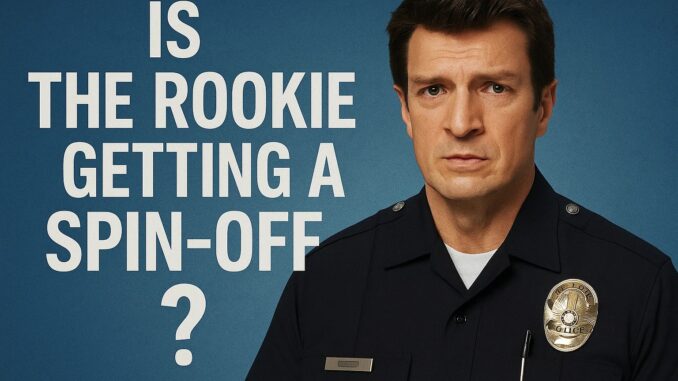
Your Favorite Cop Show Is Probably Getting a Spinoff
If you’re a fan of police procedural series, get ready: your go-to cop show may soon be spawning a brand-new spinoff. According to recent developments, producers and networks are actively exploring ways to expand established franchises with fresh storylines and characters.
The Spinoff Trend: Why It Keeps Happening
Television networks have long leaned on spinoffs as a low-risk way to extend a show’s lifespan. Rather than launching completely new series from scratch, they take proven hits and build complementary shows that attract existing viewers. This formula works especially well in the world of cop shows—where viewers already care about the characters, setting, and tone.
In recent years, we’ve seen spinoffs succeed not just by reusing familiar faces, but by shifting focus to new precincts, different time periods, or offshoot teams. These creative pivots allow writers to explore side stories that don’t fit neatly into the original program.
What We Know So Far
-
Early stages only: While a spinoff is being talked about, no official launch date has been confirmed. The project remains in brainstorming or “development” mode.
-
Possible settings: Some rumors suggest the spinoff could take place in a different city, or follow a secondary character from the original show as they transfer to a new unit.
-
Creative freedom: Development teams are reportedly in discussions to determine whether the show will mimic the original tone (serious and gritty) or take a lighter, more character-driven route.
-
Cast involvement: Whether original cast members will appear is still up in the air. It’s common for initial episodes of a spinoff to feature crossover appearances, but long-term involvement is not guaranteed.
Why Some Spinoffs Work — And Why Others Don’t
There are a few key factors that influence whether a cop-show spinoff takes off:
-
Strong lead character: Spinoffs tend to fare better when they center on a character who was compelling enough in the original show to carry their own narrative.
-
Distinct identity: If the spinoff simply rehashes the original, it risks being labeled derivative. The best ones carve out a unique niche—be it a different locale, tone, or investigative style.
-
Smart crossover strategy: Occasional guest appearances from original series characters can help build audience interest. But overusing them can make the new show feel dependent, rather than independent.
-
Fresh storytelling: Even if the original series was procedural, viewers still want fresh mysteries, new interpersonal dynamics, and surprises. Repetition can kill a spinoff.
On the flip side, spinoffs often flop when they rely too heavily on nostalgia, or don’t offer anything new beyond bringing back old characters.
What to Watch For
If the spinoff moves forward, here are a few key signs to keep an eye on:
-
Casting announcements — Who’s leading the show? Is it a familiar face—or someone entirely new?
-
Pilot reviews — Early reactions will reveal whether the new show differs meaningfully from the original.
-
Network positioning — Will the spinoff air immediately after the original series? Will it be marketed as part of a franchise block?
-
Fan response — Will longtime viewers embrace the spinoff on its own merits, or insist it live up to its predecessor?